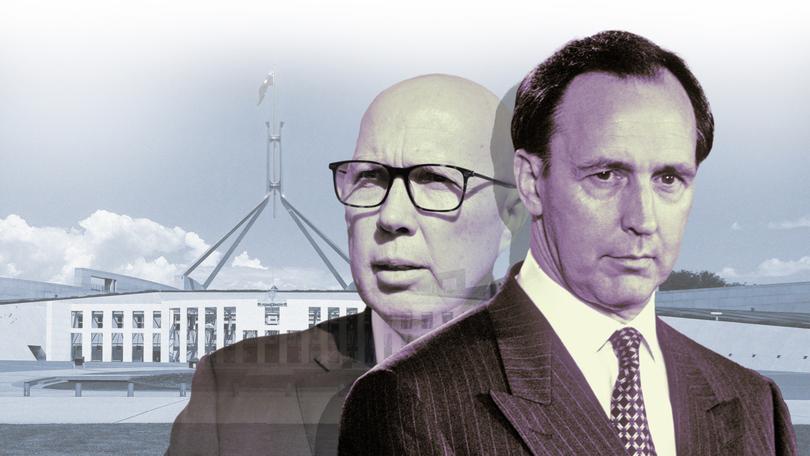JENI O’DOWD: Plenty of time left in this election for Peter Dutton to pull a Paul Keating
JENI O’DOWD: If history teaches us anything, it’s this: a day is a long time in politics, and with just a few to go, anything can happen. Peter Dutton could even pull off a Paul Keating.

Peter Dutton is certainly no Paul Keating. Nor is Anthony Albanese, for that matter.
Keating had razor-sharp wit, an innate flair for politics and a masterful command of language that could eviscerate an opponent with a single line.
But even so, as polling day loomed in 1993, both the media and the polls had all but written him off. The Coalition under John Hewson was expected to win the “unlosable election,” and Keating’s political obituary had practically been published in advance.
Sign up to The Nightly's newsletters.
Get the first look at the digital newspaper, curated daily stories and breaking headlines delivered to your inbox.
By continuing you agree to our Terms and Privacy Policy.Yet Keating pulled off what he famously called the “sweetest victory of all”, stunning the pundits, pollsters and the press.
If Australian politics teaches us anything, it’s this: a day is a long time in politics, and with just a few to go, anything can happen.
The parallels with Peter Dutton today aren’t exact, but they’re hard to ignore. Like Keating in 1993, Dutton has been trailing in the polls.
Like Keating, he’s been labelled unelectable. And like Keating, he’s trying to tap into the frustrations of suburban Australians who feel increasingly squeezed by rising costs and a sense that those in charge are out of touch.
Of course, the differences matter too. Keating was an incumbent prime minister, armed with the authority of office and an unmatched instinct for the political jugular.
Dutton is in Opposition, often criticised for a lack of charisma and warmth. He doesn’t have Keating’s poetic touch — but he does have something else working for him: widespread and very real discontent.
I don’t think anyone should underestimate just how much people are hurting. Mortgage payments, rents, groceries, power bills — for many Australians, the financial squeeze is relentless. And when people are genuinely struggling, the political mood can shift fast.
In 1993, the Coalition’s “Fightback!” policy package — particularly the proposed goods and services tax — gave Keating the opening he needed. He hammered it home, making the risks real for everyday voters.
This is the approach Dutton should have taken: hammering the cost of living at every opportunity, making it the inescapable theme of the campaign.
Instead, he offered a mismatch of ideas, with no single message dominating, leaving the door wide open for Albanese to present himself as the safe, everyday bloke, not an economic risk.
On Sunday, Dutton told Seven’s Sunrise he believed Australians would see through Labor’s negative campaign.
“Australians know that in their own households they’ve gone backwards and that they can’t afford three more years of (Labor), you know, groceries are up by 30 per cent, gas is up by 34 per cent, electricity is up by 32 per cent, and our plan is to provide support now,” he said.
Which is what he should have been saying every day, at every opportunity, for the past 33 days.
Keating’s genius was turning the election into a simple choice: fight for your standard of living, or risk it all with the GST. Dutton needed to make this election a simple choice, too — your cost of living, or Labor’s excuses. Instead, he offered a scattergun of issues without a single, searing message that stuck.
But just as political strategy can change an election, so too can the gap between media expectations and voter reality.
In the lead up to the 1993 election, almost every media outlet expected Labor to lose. Editorials leaned toward change. Polls consistently had the Coalition ahead. Yet when the moment came, voters hesitated — and swung back to Keating.
I still remember the shock inside newsrooms. After he won, Keating made a point of rewarding the Telegraph, the one paper which backed him editorially. He broke with tradition by granting the Sunday Telegraph exclusive photo access to his family the day after the election — a clear snub to the rest of the press who had written him off.
Today, the media landscape is even noisier, but the lesson remains the same: never write off the underdog.
Peter Dutton may not inspire poetry or passion the way Keating did. But if politics is about momentum, mood, and late-breaking shifts among voters who are struggling, these final hours could still deliver a surprise.
If history has taught us anything, it’s this: even the “unlosable” elections can be lost.
